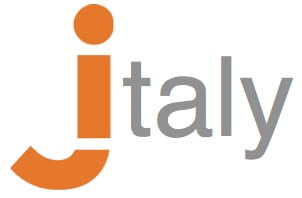While the Jews of Alghero were mostly engaged in trade, there were also many scholars and physicians among them. The best known were: Isaac Eymies (who was pensioned by the governor of Lugodoro and by the city of Alghero, and who was called in 1406 to the post of city physician of Cagliari); Ḥayyim of Hipre (author of a work on the medicinal plants of Sardinia); and Solomon Averonques (who was renowned for his surgical operations). The Jews of Alghero were not excluded from official positions. Mention is made of a Jew named Moses Sofer who, in 1467, occupied the position of tax-collector. Another, named Moses di Carcassona, was appointed by the vice-king Carroz in 1467 as the general sheriff’s officer of the court of Alghero.
In 1482, the same Moses obtained for the sum of 2,250 livres the farming of the taxes of the departments Gociano, Porte Ocier Reale, Mondrolisai, and Oristano for a period of three years. Together with his brother, Nino Carcassona, Moses lent large sums for the equipment of the navy and of the armies which had been led by the vice-king Ximene Perez to the city of Oristano.
It seems that before the Spanish domination, Alghero contained only a few Jews, who had neither a synagogue nor a separate cemetery. It was only at the end of the fourteenth century that these institutions were founded. In 1381, Vitali Alabi bought a house situated on a street leading to the castle from Giacomo Bassach and his wife, intending to use it as a synagogue. Two years later Francisco Giovanni of Santa Colombia, governor of Sassaro and Lugodoro, and later vice-king of Sardinia, permitted the physician Solomon Averonques to buy any place he might choose for a cemetery. In l438, the community of Alghero was permitted by the municipality to enlarge the synagogue. The enlargement was completed in 1454, and on this occasion the administrators of the community, Samuel Carcassona and Jacob Cohen, petitioned the government to allow them to put the coat of arms of the king on the edifice.
In 1455 a petition was addressed to the municipality by the Jewish administrators Terocio, Buria, and Giacoble Nathan to allow them to enlarge the Jewish cemetery. Like all the communities of Sardinia, that of Alghero was administered by elected directors or secretaries, who possessed judicial power in all litigations between Jews, and even between Jews and Christians (when sums not exceeding five livres were involved).
Persecution and Expulsion
However, while the Jews of Alghero were, for unknown reasons, the object of government solicitude and enjoyed a high degree of prosperity until the year of their banishment, those of Cagliari and other communities were treated in the harshest manner after 1430. They were compelled to live in special quarters and to wear special kinds of caps, and were not allowed to wear jewels or to put on shoes of any other color than black. Jewish traders were forbidden, under the penalty of losing their goods, to transact business on Christian feast-days.
A Jew who employed a Christian was subject to a fine of twenty livres. Foreign Jews were forbidden, under the penalty of death, to settle in Sardinia without the permission of the vice-king or the archbishop. A decree issued in 1481 fixed the penalties for an offense against Christianity and for the employment of Christian servants. For the former crime the Jew was to have his hands cut off; for the latter he was to receive 200 stripes and to pay a fine of 200 ducats, and the servant was to receive an equal number of lashes.
In 1485, the Jews were declared royal property and were subjected to the special jurisdiction of the royal attorney. At the same time they were forbidden to export any of their belongings from the island. The decree containing these measures was communicated by the vice-king Ximene Perez to the leaders of the Jewish community of Cagliari, Abraham Mili, Emanuel Mili, Samuel Bondra, Isaac Sallom, Isaac Aleva, Leon Miro, and others. The banishment of the Jews from Spain was closely followed by that of the Jews of Sardinia.



